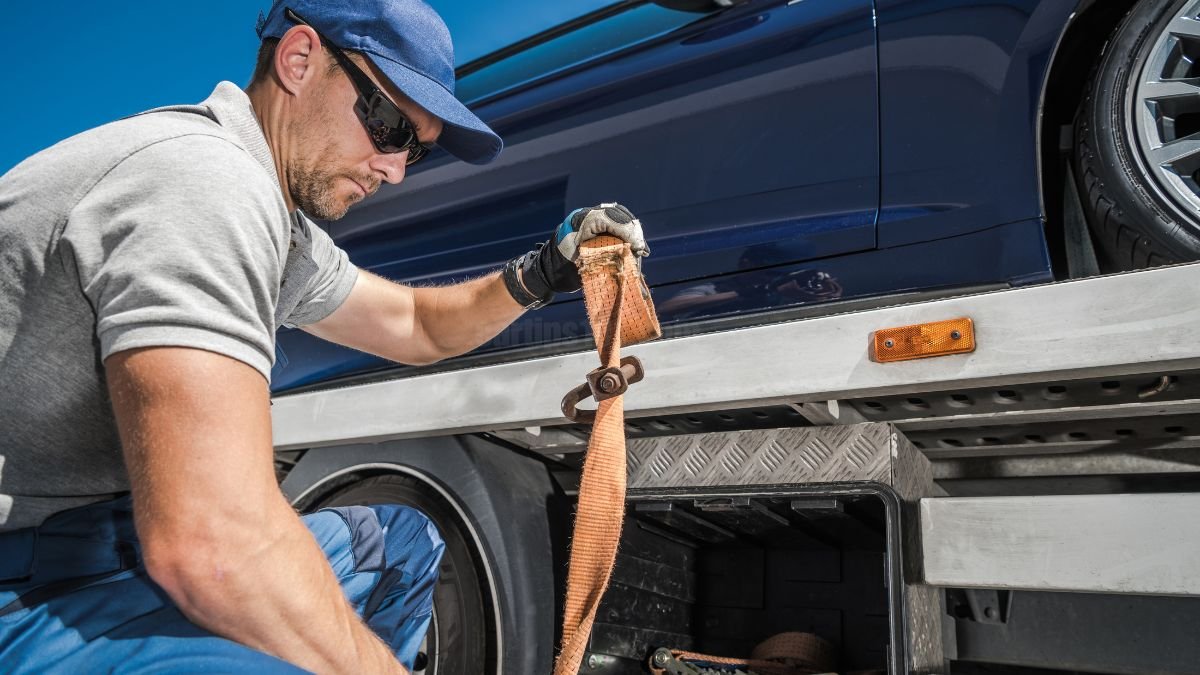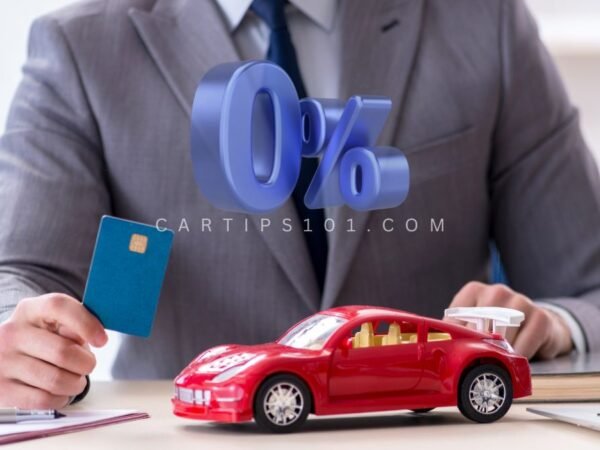Wondering if you can finance another car after repossession? While a repossession can be a significant setback, it doesn't have to end your chances of getting back behind the wheel. Financing a vehicle after repossession is possible, though it may require more effort and planning. In this article, we’ll explore how you can navigate the process, improve your chances of approval, and find the right loan options even after a financial hiccup like repossession.
Can You Finance Another Car After Repossession?
Repossession occurs when a lender reclaims your car due to missed payments. This negative mark stays on your credit report for up to seven years, potentially impacting your ability to secure future loans. However, financing another car after repossession is possible, though it will likely come with higher interest rates and stricter terms.
Specific Examples:
- High-Risk Lenders: Some lenders specialize in working with individuals who have poor credit or a history of repossession.
- Increased Down Payments: Lenders may require a larger down payment (e.g., 20-30%) to mitigate their risk.
- Cosigner Option: Having a cosigner with a strong credit score can help you secure better terms.
Tips for Financing After Repossession:
- Improve Your Credit Score: Pay down existing debts and avoid late payments.
- Save for a Large Down Payment: This can lower your loan amount and make lenders more willing to work with you.
- Shop Around for Lenders: Look for those experienced in subprime auto loans.
| Factor | Details |
|---|---|
| Credit Score | Affected for up to 7 years |
| Down Payment | 20-30% recommended |
| Interest Rates | Higher than standard loans |
| Cosigner Option | Improves loan terms |
| Lender Type | High-risk or subprime lenders |
We’ve only scratched the surface of what you need to know about financing another car after repossession. In the next sections, we’ll break down practical steps to improve your chances of approval, discuss how to rebuild your credit, and provide you with real-world tips that can help you drive off the lot in no time. Don’t miss out on these valuable insights—especially if you're serious about securing another vehicle despite a past repossession.
Understanding Car Repossession
What is Car Repossession?
Car repossession occurs when a lender takes back a vehicle due to missed payments or breach of the loan agreement. This process typically follows a series of warnings and notices from the lender. Once your car is repossessed, you lose ownership, and the lender can sell the vehicle to recover the unpaid debt.
Impact of Car Repossession on Credit
A repossession can significantly lower your credit score by as much as 100-150 points, and it may stay on your credit profile for up to seven years after the date of the missed payment. This negative item on your credit report makes it more challenging to secure a new loan. Many lenders may be unwilling to offer you a loan, or they may provide a loan with a high interest rate, which could make repayment difficult (Lexington Law).
The following table illustrates the potential impact of repossession on your credit:
| Factor | Impact |
|---|---|
| Credit Score Decrease | 100-150 points |
| Duration on Credit Report | Up to 7 years |
| Loan Approval Difficulty | Increased |
| Potential Interest Rate Increase | Yes |
Repossession not only affects your ability to finance another car but may also result in higher car insurance premiums (Ramsey Solutions). While this situation can seem overwhelming, it's important to understand that steps can be taken to improve your credit before the seven-year period ends.
Recovering Financially After Repossession
Experiencing a car repossession can be a challenging and stressful situation. However, there are steps you can take to recover financially and move forward.
Ways to Recover After Repossession
After your vehicle is repossessed, there are several recovery options available to you:
- Reinstating the Loan: In some cases, you may have the option to reinstate your loan by paying the outstanding balance, fees, and any missed payments. This can allow you to regain possession of your vehicle.
- Buying Back the Vehicle: If you cannot reinstate the loan, you might have the chance to buy back your repossessed vehicle at an auction. The price will depend on the auction value and any fees associated with the process.
- Seeking Financial Assistance: Nonprofit credit counseling organizations can help you navigate your financial situation. They may offer resources, advice, and assistance in managing your debts.
- Saving for a Used Car: If waiting to finance another vehicle, consider saving to purchase a used car with cash. This eliminates the need for financing and associated fees, providing a more stable option while you rebuild your credit.
Rebuilding Credit Post-Repossession
After a repossession, rebuilding your credit is essential for securing future financing options. Here are some strategies to help improve your credit score:
- Stay Current on Bills: Ensure you pay all your bills on time, including utilities, rent, and other debts. Timely payments positively impact your credit history.
- Catch Up on Missed Payments: If you have outstanding debts, prioritize catching up on missed payments. This can help mitigate further damage to your credit score (Dick Says Yes).
- Rebuild Your Credit Score: Even small efforts, such as opening a secured credit card or becoming an authorized user on someone else’s card, can help improve your score.
- Understand the Long-Term Impact: A repossession can lead to a significant drop in your credit score, often by 100 points or more. This derogatory mark stays on your credit report for seven years from the date of the first missed payment that led to the repossession (Car Deal Canada).
| Time Since Repossession | Average Interest Rate (%) |
|---|---|
| 0 - 12 months | 15 - 25 |
| After 1 year | Gradual decrease by 2-3% per year |
| 3 - 4 years | Potentially below 10% |
By actively working on your credit, you can improve your chances of qualifying for new loans or credit cards in the future. Remember that lenders consider borrowers with recent repossessions as high-risk, which is why it is crucial to take steps towards rebuilding your financial health.
Financing a Car After Repossession
After experiencing car repossession, you may wonder, "Can you finance another car after repossession?" The answer is yes, but it often comes with certain challenges. Understanding the requirements of traditional lenders and exploring specialized financing options can help you navigate this process.
Traditional Lenders' Requirements
Traditional lenders, such as banks and credit unions, often have strict criteria for approving car loans following a repossession. Generally, you may need to wait at least 12 months after repossession before these lenders will consider you for a loan. This waiting period allows time for your credit score to recover and demonstrates that you can manage your finances responsibly.
The impact of repossession on your credit score can be significant. Your score may drop by 100 points or more, and this derogatory mark can remain on your credit report for up to seven years from the first missed payment that led to the repossession (Car Deal Canada). During this time, lenders will view you as a high-risk borrower, which can lead to higher interest rates.
| Time Since Repossession | Possible Lender Response |
|---|---|
| Less than 12 months | Likely to deny loan application |
| 12 months or more | May consider application, but expect higher interest rates |
Interest rates for auto loans after repossession can range from 15% to 25%, depending on the lender and your credit profile. As you work on rebuilding your credit, these rates can decrease by 2-3% per year, potentially reaching under 10% within 3-4 years of dedicated credit repair (Car Deal Canada).
Specialized Financing Options
If you find it challenging to secure financing through traditional lenders, specialized financing options may be available to you. These options include subprime lenders and buy-here-pay-here dealerships. Subprime lenders cater specifically to individuals with poor credit histories, including those who have experienced repossession. While these lenders may approve your application more easily, they often charge higher interest rates and may require larger down payments.
Buy-here-pay-here dealerships offer in-house financing, which means you make payments directly to the dealership rather than a bank or credit union. This option can be appealing for those with poor credit, but it is essential to research the dealership thoroughly to avoid predatory lending practices.
| Financing Option | Pros | Cons |
|---|---|---|
| Subprime Lenders | Easier approval, tailored for poor credit | High interest rates, potential hidden fees |
| Buy-Here-Pay-Here | Direct financing, flexible terms | Higher overall cost, potential for predatory lending |
Exploring these specialized options may provide you with the opportunity to finance a vehicle sooner than you would with traditional lenders. Always carefully consider the terms and conditions before committing to a loan, ensuring that you understand the total cost and repayment terms.
Tips for Securing Auto Financing
Finding a way to finance another vehicle after a repossession can be challenging. However, with the right preparation and understanding of the process, you can increase your chances of securing a loan. Here are some tips to help you navigate auto financing after repossession.
Preparing for an Auto Loan
Before applying for an auto loan, it's essential to prepare yourself financially. Here are some steps to take:
- Stay Current on Bills: Begin by ensuring that all your current bills are paid on time. This demonstrates responsible financial behavior to potential lenders.
- Catch Up on Missed Payments: If you have other debts, try to catch up on any missed payments. This shows lenders that you are making an effort to improve your financial situation.
- Rebuild Your Credit Score: Work on rebuilding your credit score. Even small efforts, such as paying down existing debt or using secured credit cards responsibly, can have a significant impact.
| Action Item | Description |
|---|---|
| Stay Current on Bills | Pay all current bills on time |
| Catch Up on Missed Payments | Address any overdue debts |
| Rebuild Your Credit Score | Use credit responsibly and pay down debts |
By focusing on these areas, you can improve your financial profile, which may assist in securing auto financing.
Streamlined Loan Approval Process
Some lenders offer a streamlined process for obtaining a car loan after repossession. For instance, Dick Says Yes provides an efficient approach where you can fill out an online pre-approval form. Here’s how it generally works:
- Online Pre-Approval: Complete the online pre-approval form to initiate the process.
- Phone Interview: A finance specialist will conduct a phone interview to assess your situation and needs.
- Quick Approval: Many individuals can potentially get behind the wheel in as little as 24 hours.
| Step | Description |
|---|---|
| Online Pre-Approval | Fill out a pre-approval form online |
| Phone Interview | Discuss your situation with a finance specialist |
| Quick Approval | Secure financing in as little as 24 hours |
Traditional lenders may require you to wait at least 12 months after a repossession before considering you for a car loan, especially if you are still paying off the debt. During this waiting period, it is advisable to save money to purchase an inexpensive used car with cash if possible, to avoid financing and extra fees.
These steps will help you effectively prepare for and navigate the auto financing process after experiencing a repossession.
Minimizing Credit Damage
Experiencing a car repossession can be stressful, but there are steps you can take to minimize the damage to your credit. Effective communication with lenders and exploring alternatives to repossession can make a significant difference in your financial future.
Communication with Lenders
Maintaining open communication with your lender is crucial. As soon as you anticipate issues with your payments, reach out to them. Being honest about your situation allows you to discuss potential solutions. Options may include lowering your monthly payments or pausing them temporarily.
| Action | Description |
|---|---|
| Contact Lender | Reach out as soon as payment issues arise. |
| Be Honest | Explain your financial situation clearly. |
| Explore Options | Discuss lowering or pausing payments. |
By being proactive, you can often avoid the need for repossession altogether. If repossession seems unavoidable, consider discussing alternatives such as voluntary repossession. However, it is important to note that voluntary repossession can still impact your credit, so weigh your options carefully.
Exploring Alternatives to Repossession
If you're struggling to keep up with your car payments, there are several alternatives you can consider. These options can help you avoid further credit damage and potentially allow you to maintain vehicle ownership.
- Refinancing: Look into refinancing your auto loan with another lender. This may offer you lower interest rates or more manageable payment terms.
- Selling the Car: If you can sell the car, use the proceeds to pay off the loan. This can prevent repossession and help you clear your debt.
- Loan Modification Programs: Some lenders offer loan modification programs that might allow you to adjust your payment terms to fit your financial situation better.
Taking these steps can significantly reduce the negative impact of a repossession on your credit score. Always remember to act quickly and explore all available options to protect your financial future.
Legal Rights and Protection
Understanding your legal rights after a car repossession is crucial for navigating the aftermath. You have protections under the law that can help you in these situations.
Rights After Repossession
If your car is repossessed, you have certain legal rights. For instance, you have the right to reinstate your contract by paying the past due amounts. If the lender does not agree to reinstate your contract, they may attempt to sell your car at an auction. You have the right to know when and where the sale will take place, as well as the right to bid on the car and try to buy it back.
If you have paid more than 60% of the loan when your car is repossessed, your lender must auction the car within 90 days (NYC Bar).
| Right | Description |
|---|---|
| Reinstatement | Pay past due amounts to reinstate your contract. |
| Auction Notification | Be informed of when and where your car will be sold. |
| Right to Bid | Participate in the auction to buy back your car. |
| 60% Rule | If over 60% paid, lender must auction within 90 days. |
Legal Options for Repossession Situations
You have several options to consider if your car is repossessed. You can negotiate with the lender or leaseholder, which may involve discussing your financial situation and seeking alternatives. Paying the past due amounts can also help you regain possession of the vehicle.
If your car is sold at auction, the lender will first deduct fees related to the repossession and storage costs before applying the remaining funds toward your loan balance. If the sale does not cover the outstanding loan balance, the lender has the right to sue you for the deficiency balance. However, the car must be sold in a commercially reasonable manner, meaning it cannot be sold for significantly less than its market value (NYC Bar).
| Option | Description |
|---|---|
| Negotiate | Discuss your situation with the lender to find a solution. |
| Pay Past Due | Clear owed amounts to reclaim your vehicle. |
| Auction Participation | Join the auction to buy back your car. |
| Deficiency Balance | Understand potential legal action for remaining debt after auction. |
Being aware of your rights and legal options can empower you to take informed steps following a repossession. If you find yourself asking, "can you finance another car after repossession," knowing these rights will help guide your next actions.
Final Thoughts: Can You Finance Another Car After Repossession?
Securing a car loan after a repossession can seem daunting, but with patience and a solid strategy, it’s achievable. By focusing on improving your credit score, saving for a substantial down payment, and exploring various lending options, you can increase your chances of getting approved. Don’t let a repossession define your financial future—take control and drive forward!
FAQs about Financing Another Car After Repossession
Q: How long should I wait after repossession to finance another car?
A: Typically, it's best to wait at least 6-12 months after a repossession before applying for another car loan. During this period, you should work on rebuilding your credit score and saving for a larger down payment. This will improve your chances of securing a loan with more favorable terms.
Q: Will my repossession affect the interest rates on a new loan?
A: Yes, repossession will likely result in higher interest rates on any new loans. Lenders view individuals with repossessions as higher risk, which means they’ll offset the risk by charging more in interest. To combat this, try improving your credit score or offering a larger down payment.
Q: Can I get a car loan after repossession with a cosigner?
A: Yes, having a cosigner can significantly improve your chances of getting approved for a loan after repossession. A cosigner with good credit can help you secure a lower interest rate and better loan terms since they are taking on part of the financial responsibility.
Q: What types of lenders are willing to finance after repossession?
A: High-risk or subprime lenders often work with borrowers who have poor credit or a history of repossession. These lenders specialize in offering auto loans to individuals with financial setbacks, though the terms may include higher interest rates and fees.
Q: How much should I put down for a car loan after repossession?
A: A down payment of 20-30% is often recommended when financing a car after repossession. The larger the down payment, the lower the loan amount, which reduces the risk for the lender and could help you secure a loan more easily.
Image Source: Paid image from CANVA





